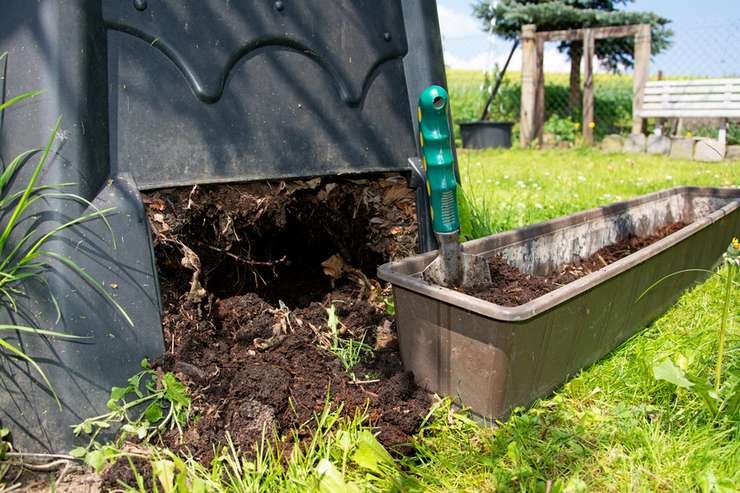Water is absolutely necessary for composting, also called rotting. Without a moist environment within a compost pile, the decomposition processes would not take place. However, if the compost is too wet, the system tilts and rot sets in. The directly recognizable consequence and a sure indicator for a too wet compost is the smell: The compost stinks rotten. Tip: If you squeeze compost with your hand and water drips out, the compost is definitely too wet.
Reasons for compost that is too wet
If the compost is too wet and putrid, there can be a variety of reasons. Often it is due to the wrong compost material that has been piled up. The classic cause is the excessive admixture of grass clippings. Freshly mown grass has a very high moisture content and is therefore only partially suitable for direct addition to the compost. It is better to dry the grass cuttings in a separate place beforehand. The amount should also be “well-dosed”, because ultimately it depends on the right mixing ratio when composting. This means that in addition to moist materials from the kitchen and garden, a layer of dry and “airy” material such as wood and hedge cuttings should always be added to the compost.
What to do if the compost is too wet?
To save the “overturned” compost and normalize the rotting process, it is necessary to mix the materials well and thus transport more oxygen into the wet compost. Thorough turning of the compost is mandatory.
If the compost is very wet and rotting is very widespread, it makes sense to improve the structure and add dry material such as straw or small wood. Air inlets on the compost bin should in any case be part of a well set compost heap.
Another obvious cause of excessively wet compost is excessive water penetration. Here must be provided accordingly for a cover by a tarpaulin. A composter with a lid is also recommended.


